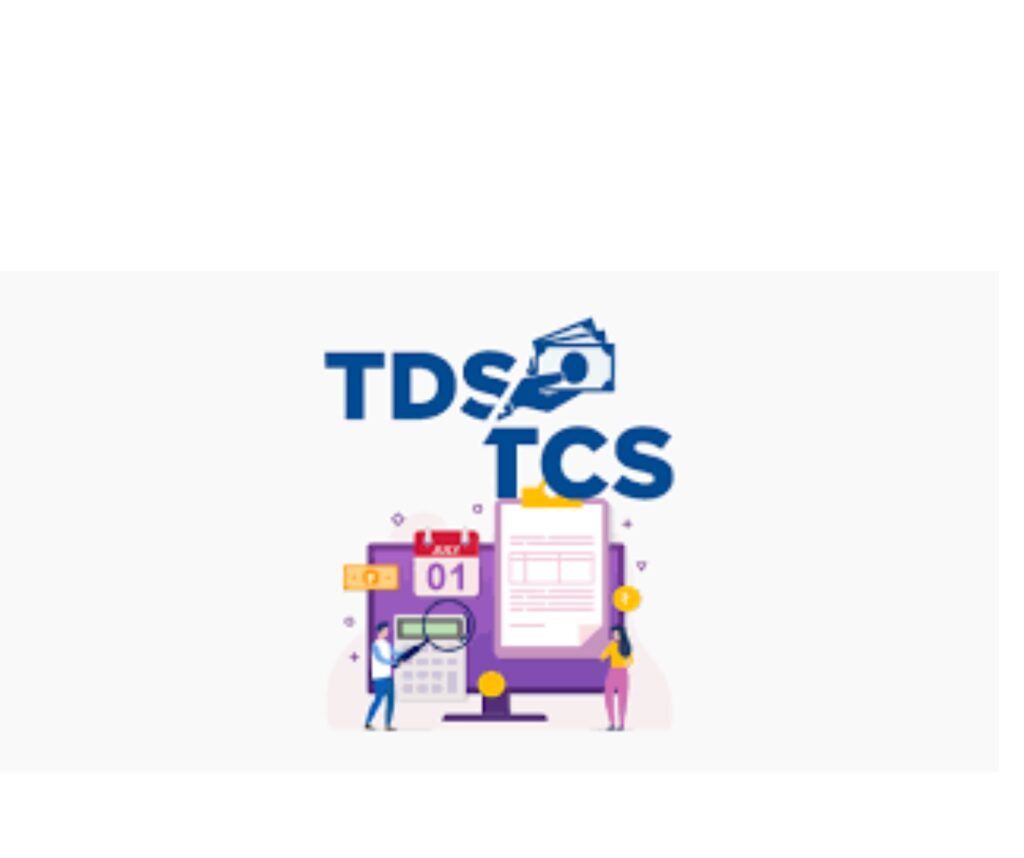TDS and TCS Compliances
What is TDS and TCS Compliance?
Introduction
Tax Deducted at Source (TDS) and Tax Collected at Source (TCS) are crucial components of India’s tax system. These mechanisms ensure tax collection at the point of transaction, reducing the risk of tax evasion and improving cash flow for the government. Businesses and individuals must comply with TDS and TCS regulations to avoid penalties and ensure smooth financial operations. This article explores the definitions, applications, benefits, limitations, and differences between TDS and TCS.
Definition
Tax Deducted at Source (TDS)
TDS is a tax collection method where a certain percentage of tax is deducted by the payer at the time of payment. The deducted amount is then remitted to the government by the deductor. It applies to payments such as salaries, interest, professional fees, and rent.
Tax Collected at Source (TCS)
TCS is the tax collected by a seller from the buyer at the time of sale of specific goods or services. The seller is responsible for collecting the tax and depositing it with the government. TCS applies to transactions like the sale of motor vehicles, scrap, minerals, and tendu leaves.
Application
Applicability of TDS
TDS applies to various types of payments, including:
- Salaries
- Interest on securities
- Commission and brokerage
- Rent exceeding specified limits
- Professional and technical fees
- Payments to contractors and sub-contractors
Applicability of TCS
TCS is applicable in cases such as:
- Sale of alcoholic liquor
- Sale of tendu leaves
- Sale of timber and forest produce
- Sale of scrap materials
- Sale of motor vehicles above ₹10 lakh
Benefits of TDS and TCS Compliance
- Reduces Tax Evasion – Ensures tax is collected in advance, reducing instances of non-payment.
- Improves Government Revenue Flow – Provides a steady source of revenue for the government.
- Streamlines Tax Collection – Simplifies tax collection and minimizes the burden of lump sum payments.
- Legal Compliance – Helps businesses avoid penalties and interest on non-compliance.
- Encourages Transparency – Ensures accountability in financial transactions.
Limitations of TDS and TCS
- Complexity in Compliance – Requires proper documentation and timely filing of returns.
- Cash Flow Issues – Businesses may face liquidity issues due to immediate tax deduction.
- Heavy Penalties – Late deposit or incorrect filing can lead to severe penalties and interest.
- Increased Administrative Burden – Requires maintenance of detailed records and frequent compliance checks.
Comparative Table: TDS vs. TCS
| Feature | TDS (Tax Deducted at Source) | TCS (Tax Collected at Source) |
|---|---|---|
| Who Deducts/Collects | Payer/Deductor | Seller/Collector |
| When Applied | At the time of payment | At the time of sale |
| Applicable On | Salaries, rent, professional fees, interest, etc. | Sale of specific goods and services |
| Deposit Timeline | By the 7th of the following month | By the 7th of the following month |
| Return Filing Due Date | Quarterly (Form 24Q, 26Q) | Quarterly (Form 27EQ) |
| Penalty for Non-Compliance | Interest at 1% or 1.5% per month, late filing fees, prosecution | Interest at 1% per month, late filing fees, prosecution |
Conclusion
TDS and TCS compliance are essential for ensuring a smooth and transparent taxation system. While TDS helps in collecting tax at the source of income, TCS ensures tax collection at the sale of specified goods. Despite their benefits, compliance can be complex and requires businesses to stay updated with the latest tax regulations. Proper adherence to these tax laws not only avoids penalties but also contributes to the economic development of the country. Businesses must implement robust tax management practices to ensure smooth operations and compliance with tax laws.
To visit: https://www.incometax.gov.in
FAQs
1. What is TDS?
- TDS (Tax Deducted at Source) is a tax that is deducted by the payer (like an employer or a company) from payments made to the payee (like employees or vendors). The deducted amount is then deposited with the government.
2. What is TCS?
- TCS (Tax Collected at Source) is a tax collected by sellers from buyers at the time of sale of certain goods. The collected amount is then deposited with the government.
3. Who is responsible for TDS?
- The person or entity making the payment (the deductor) is responsible for deducting TDS before making the payment to the recipient (the deductee).
4. Who is responsible for TCS?
- The seller of goods specified under the TCS provisions is responsible for collecting TCS from the buyer.
5. When should TDS be deposited?
- TDS should be deposited with the government by the 7th of the following month in which the deduction was made. For March, the due date is April 30th.
6. When should TCS be deposited?
- TCS should be deposited with the government by the 7th of the month following the month in which the collection was made. For March, the due date is April 30th.
7. What are the consequences of late TDS/TCS deposit?
- Late deposit of TDS/TCS can lead to penalties and interest charges. The deductor/collector must also file a revised return to correct any mistakes.
8. What is a TDS/TCS certificate?
- A TDS/TCS certificate is a document issue by the deductor/collector that shows the amount of tax deducted or collected and deposited with the government. It is use by the payee/buyer to claim credit for the tax.
9. How often should TDS/TCS returns be file?
- TDS returns should be file quarterly. TCS returns should also be filed quarterly. Both types of returns provide details about the deductions or collections made during the quarter.
10. What is Form 26AS?
- Form 26AS is an annual tax statement issue by the Income Tax Department. It shows the details of TDS, TCS, and other tax-related transactions. It helps taxpayers verify the amount of tax deducted or collected and ensures accurate credit in their tax returns.
For further details access our website https://vibrantfinserv.com

